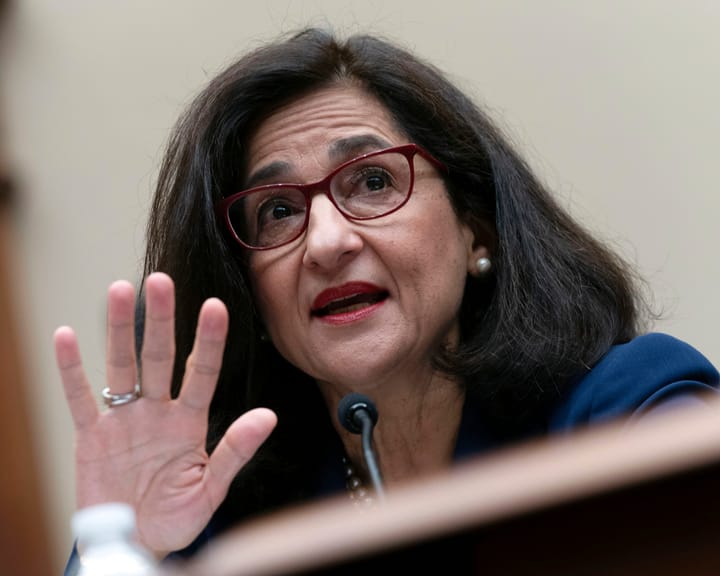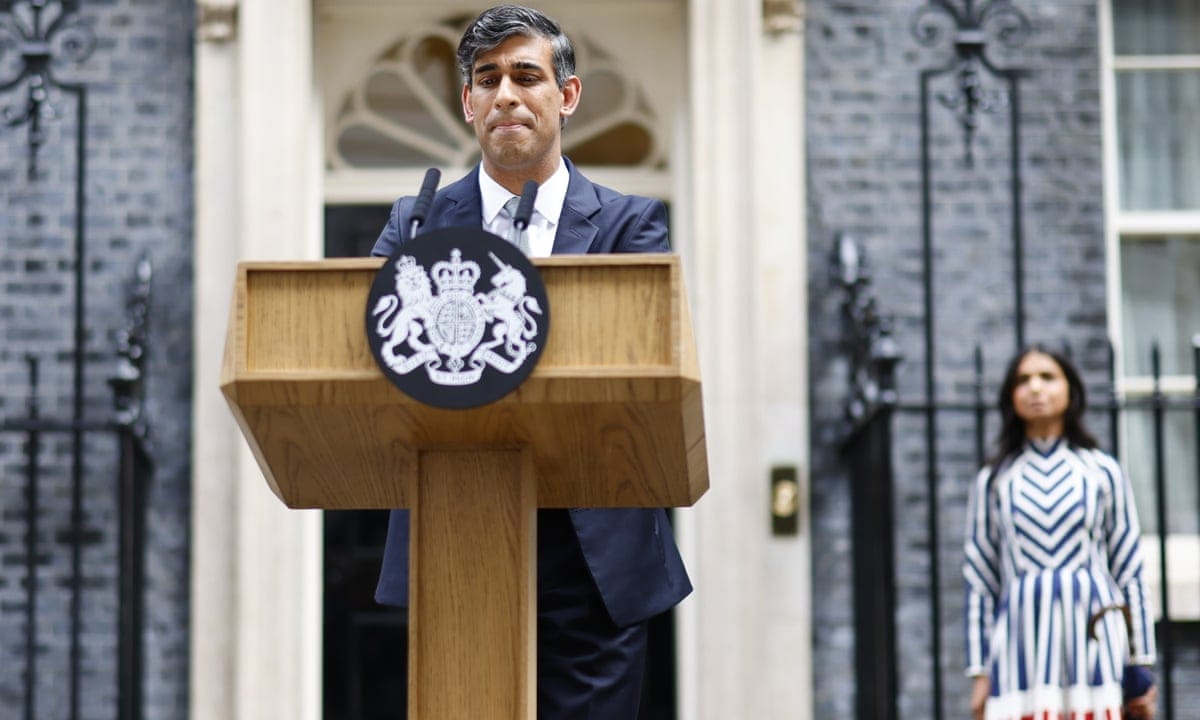Under the grey skies of Downing Street, the day mirrored its beginning – with a sense of somberness as if nature itself mourned alongside those involved in the political upheaval. As one person's defeat often signifies another's gain, this time it seemed to be Jeremy Hunt who relinquished his position after a walk that was less about celebration and more about necessity – from No 10 with his family into the mundanity of a public transport vehicle.
His departure marked an end as well as a beginning, signaling no longer would he be associated with government perks. His exit echoed the reality for many: in politics, change is not merely metamorphic but brutal and swift – there are no safe havens. Despite his less than stellar tenure as Chancellor, Hunt's departure was handled with a degree of grace that contrasted sharply with the preceding turbulence.
His successor in office, however, displayed an unapologetic stance toward defeat and change, evident from Steve Baker's bold proclamation about his relief at leaving Westminster to Liz Truss' indifferent parting gesture as she stepped out of No 10. These actions reflected the diverse emotions that accompany political transitions – a mix of disbelief, resignation, and an undercurrent of anticipation for what lies ahead.
Meanwhile, Richard Holden emerged victorious in Basildon with a slim margin, underscoring the intimate connection between representatives and their constituents - a bond that is both tested and solidified through shared experiences and political journeys.
As Rishi Sunak made his farewell speech at Downing Street, an air of resilience permeated despite personal disappointment; he recognized in his exit the opportunity for renewal – not just for himself but also for the nation. His departure underscored a broader sentiment that change, however disruptive, paves the way for new beginnings and fresh perspectives on governance.
The atmosphere was charged with an almost electric hope as Keir Starmer entered Downing Street to form the government – his arrival marked not just by cheers but also by a collective sigh of relief from supporters who had stood through four years of political fluctuations and uncertainties. His first speech set the tone for an administration that promised stability, temperance in policy-making, and governance with dignity – a stark contrast to previous tenures marred by turbulence and discord.
As Starmer navigated this new chapter, one could sense not just relief but also cautious optimism among the populace; it was an acknowledgment that change had arrived, accompanied by both challenges and opportunities for a united, forward-moving nation.
Read next

"Starmer appoints ex-Bank deputy governor as top economic advisor"
Minouche Shafik to Become Keir Starmer’s Chief Economic Adviser
Former Bank of England deputy governor Minouche Shafik is expected to join Keir Starmer’s team as his chief economic adviser.
Her appointment comes as the prime minister’s office prepares for the autumn budget, following Shafik’s recent leadership

"Home Office wins appeal allowing asylum seekers to stay at Epping hotel"
The appeals court has determined that the injunction issued by the high court should not have been approved.
Those involved acknowledge they have become part of a broader discussion about how asylum seekers are managed and urge the public to recognize that the Bell hotel was only fulfilling a government-mandated

"Scottish Greens' new leaders push for universal income and free bus fares"
Scottish Greens' new leaders, Ross Greer and Gillian Mackay, have pledged to advocate for a universal income, free bus travel, and increased taxes on high earners following a subdued leadership race.
Greer and Mackay, previously backbench MSPs at Holyrood, were elected co-conveners of the Scottish Greens with a notably

